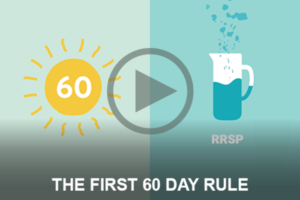Since January 11, 2021, the Canada Revenue Agency (CRA) has been sending out T4A statements to individuals who received the Canadian Emergency Response Benefit (CERB) in 2020. Accordingly, Revenu Québec will be issuing RL-1 slips to CERB recipients.
These particular T4A statements show the total amount you received from one or more of the following benefits:
- Canada Emergency Response Benefit (CERB)
- Canada Emergency Student Benefit (CESB)
- Canada Recovery Benefit (CRB)
- Canada Recovery Sickness Benefit (CRSB)
- Canada Recovery Caregiving Benefit (CRCB)
The total amount of all these benefits you received in 2020 must be entered on line 13000 of your 2020 federal income tax return.
Note: If you believe that you have received a T4A in error, you are encouraged to contact the CRA, as you may have been targeted by a fraud scam.
Watch out for tax surprises!
Although SERB and CESB payments are taxable, the federal government has not withheld any tax at source. This means that the amounts you received have been added directly to your total taxable income for 2020, potentially increasing the amount of income tax you owe.
If you received the CRB, CRSB or PRCB benefit, you may have income tax owing, as only a partial amount (approximately 10%) of the tax was withheld on payments from these programs.
Sample cases
A person who received both a salary and the CERB in 2020 could end up in a different income tax bracket with unexpected consequences, as the following examples show:
- Example 1: Employment income of $25,000 + $12,000 in CERB – the marginal tax rate is 27.53% and the tax payable is $3,304.
- Example 2: Employment income of $40,000 + $5,000 CERB – the marginal tax rate increases with the CERB amount, from 27.53% to 32.53%, and the tax payable is $1,626.
- Example 3: Employment income of $40,000 + $10,000 in CERB – the marginal tax rate increases with the SERB amount to 37.12%, and the tax payable is $3,712.
- Example 4: Employment income of $45,000 + $12,000 in CERB, the marginal tax rate is 32.53%, and the tax payable is $3,904.
Added to this is the impact that CERB has on various tax credits including the Canada Child Benefit (CCB), which is based on total family income.
What tax relief is available?
In order to reduce your tax bill, you can contribute to your Registered Retirement Savings Plan (RRSP) before March 1, 2021 and benefit from a tax deduction for the 2020 tax year. This RRSP solution has many advantages! Talk to your accountant about it or run a simulation using an online tax calculator to estimate the amounts owed on the CERB:
- Your contributions are deductible from your taxable income and thus reduce your amount owing.
- Your investment income will continue to grow on a tax-sheltered basis.
- You will save for your retirement or for a specific project—such as a home purchase through the Home Buyers’ Plan (HBP) or a return to school through the Lifelong Learning Plan (LLP).
View our video clip to learn more about the benefits of contributing during the first 60 days of the year.

